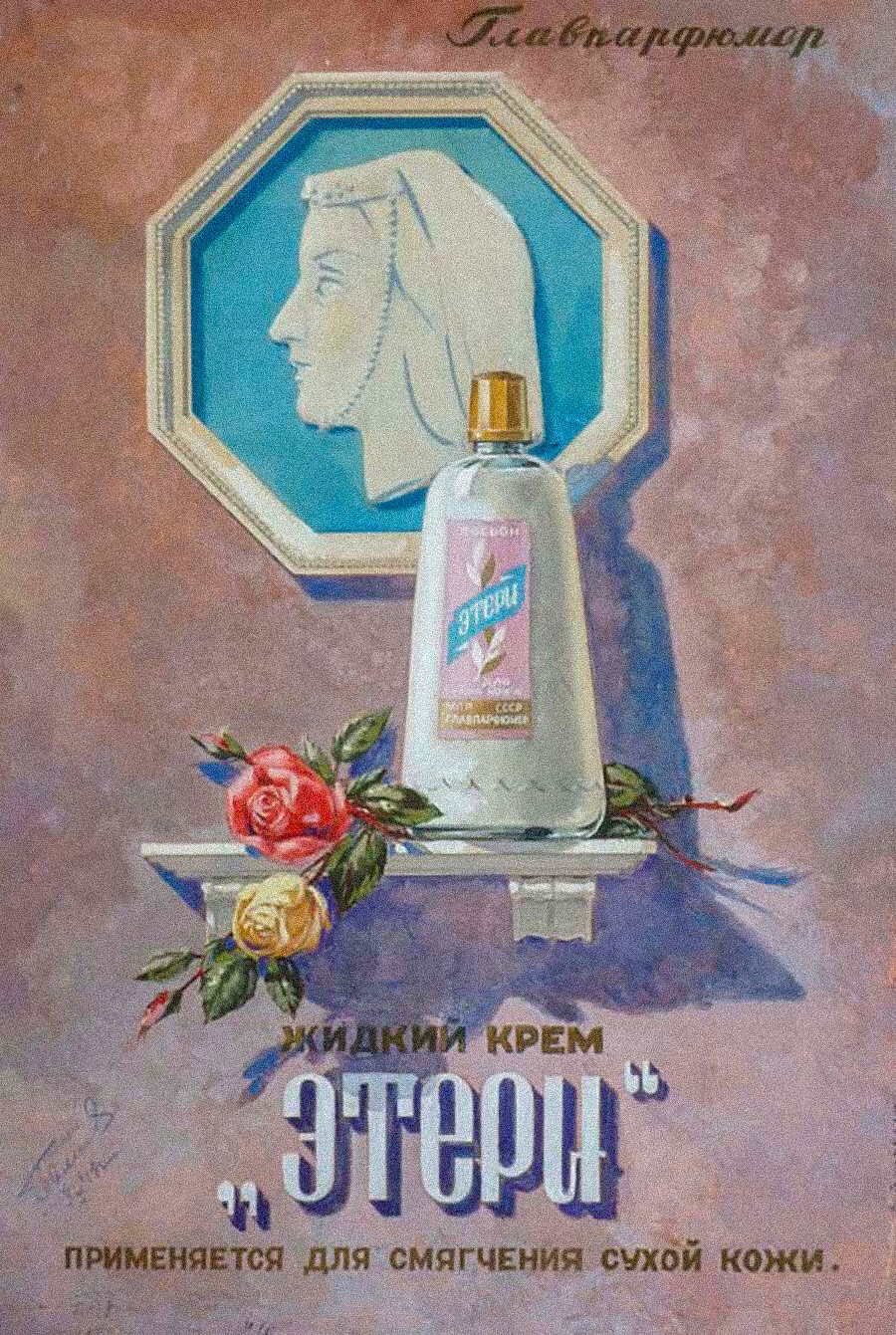What did Soviet cosmetics posters promote? (PICS)
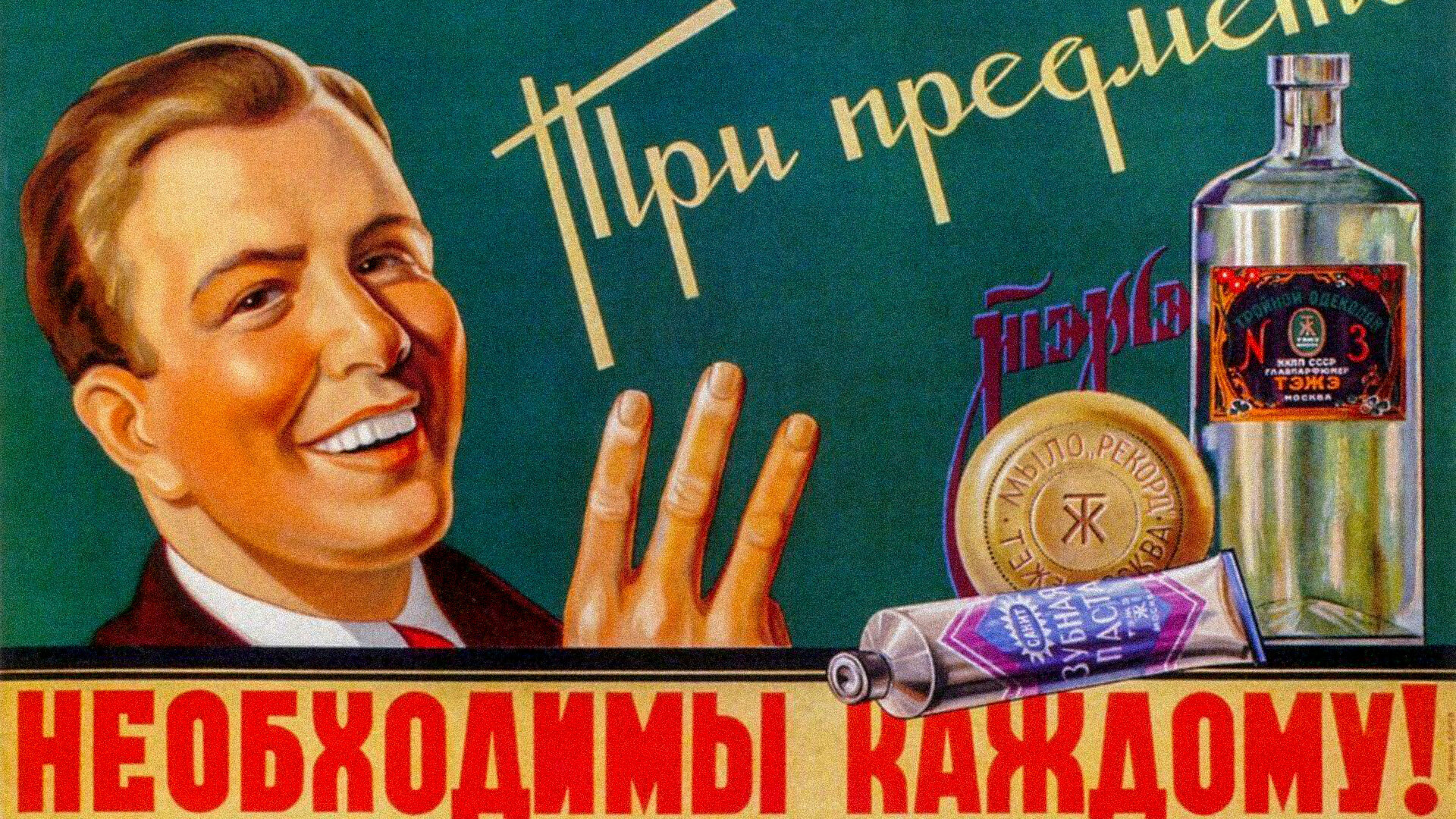
In Tsarist Russia, they produced mainly soaps, creams and perfumes. Makeup in those days was considered only appropriate for actors. After the 1917 Bolshevik Revolution, perfume factories were nationalized and, in addition to hygiene products, began to produce decorative cosmetics. Therefore, the design of advertising posters acquired an additional plot.
1. ‘Krazny Mak’ (‘Red Poppy’). The highest quality powder and lipstick
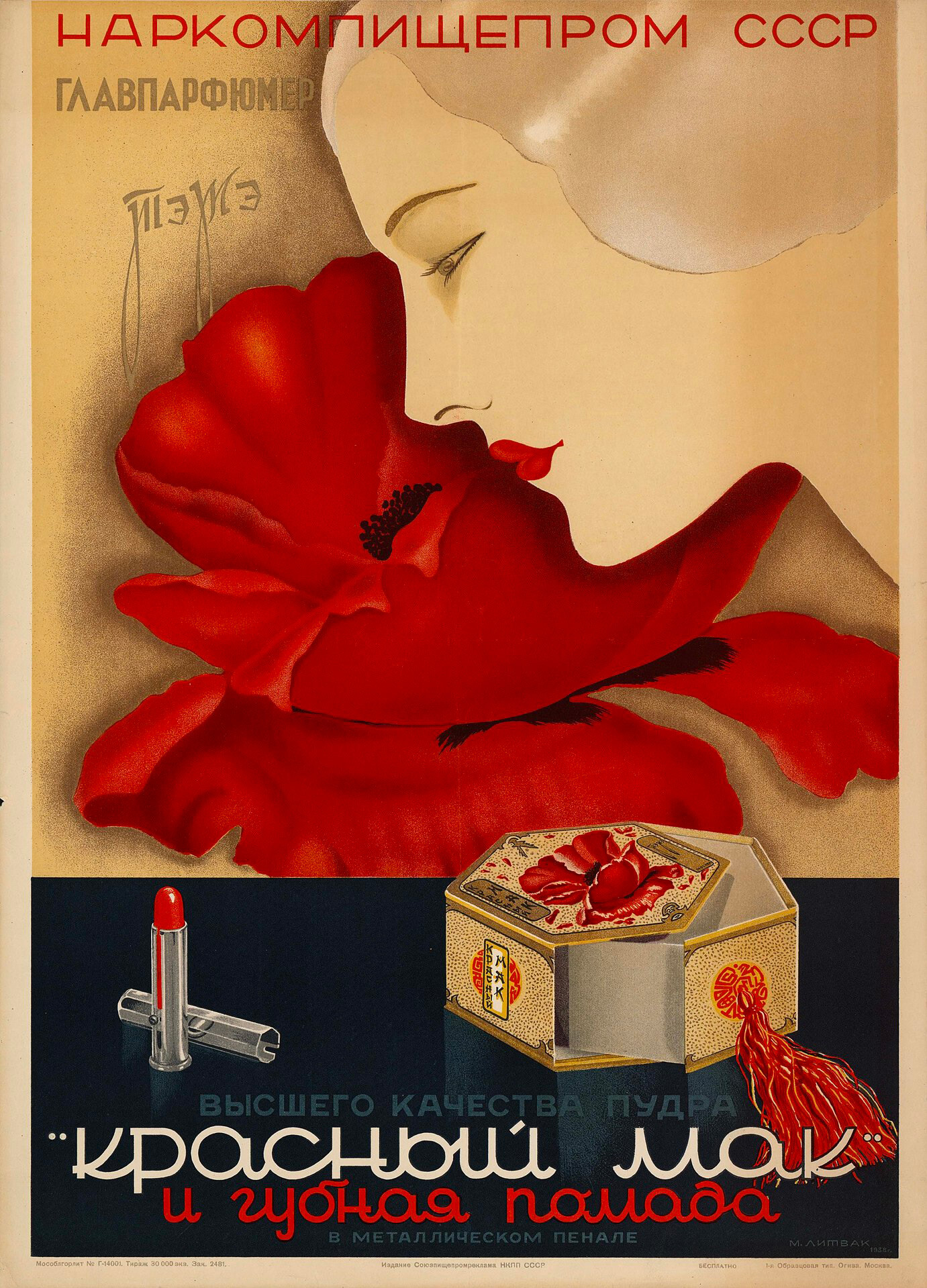
In 1922, factories were united into the ‘Fatness’ (abbreviated ‘TEZHE’) trust, which was supervised by Polina Zhemchuzhina, the wife of revolutionary and politician Vyacheslav Molotov. She believed that self-care should be available to anyone. Prices for ‘TEZHE’ products were very low.
2. Perfume, cologne, soap, powder by ‘Moskvichka’ (‘Female Muscovite’)
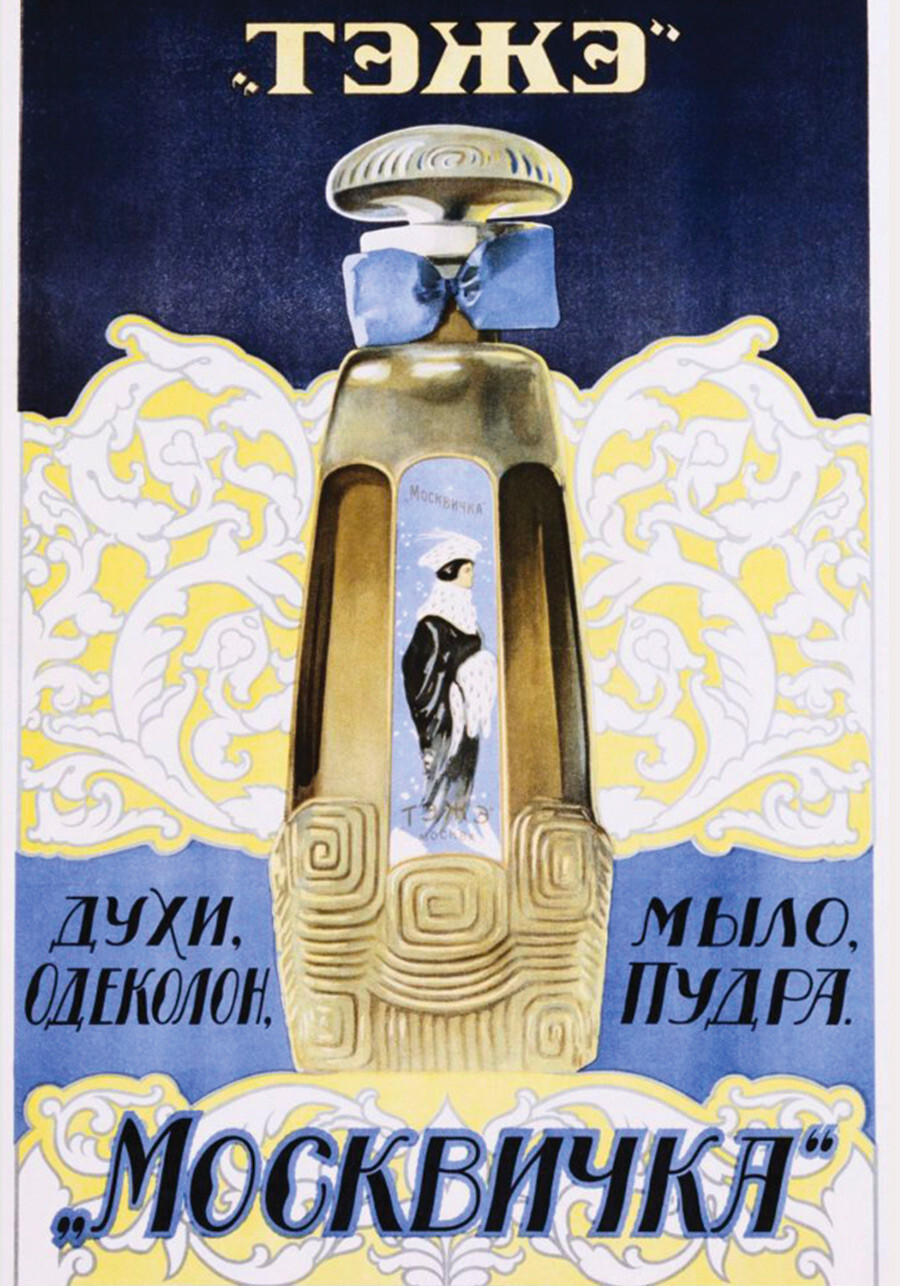
Special attention was paid to the theme of hygiene. At that time, posters reminding about hand washing and brushing teeth were very widespread. Soap and toothpaste were probably the most common cosmetic products featured on such posters.
3. 15 million people buy ‘My Grandmother's Bouquet’ soap!
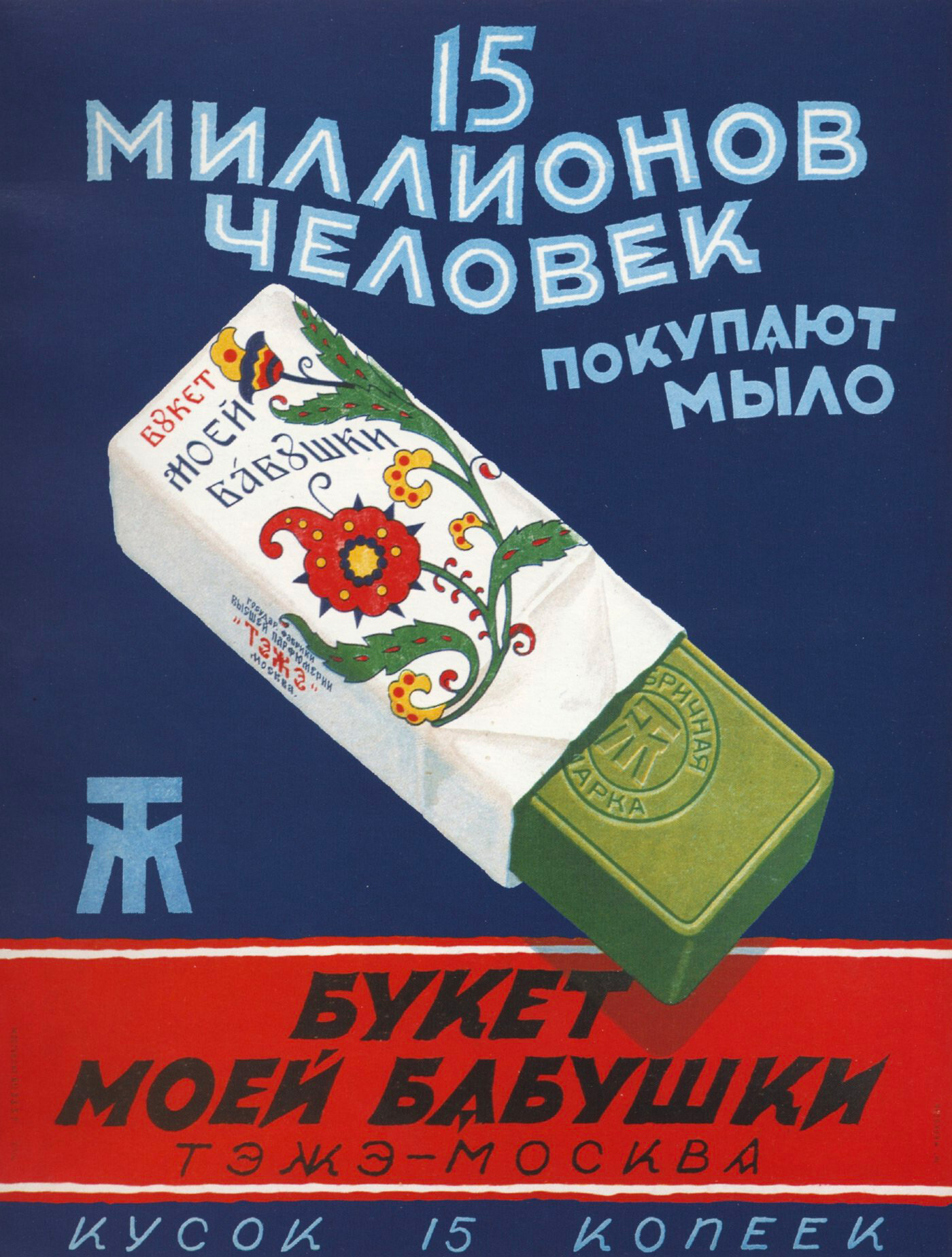
Although the Soviet Union declared a fight against the "bourgeois" lifestyle, posters of the time showed how cosmetics could fit into proletarian and peasant life. Maintaining personal hygiene was considered a sign of a cultured person, along with literacy.
4. ‘Red Poppy’ cream. Perfectly softens the skin, protects it from the effects of sunlight and weathering
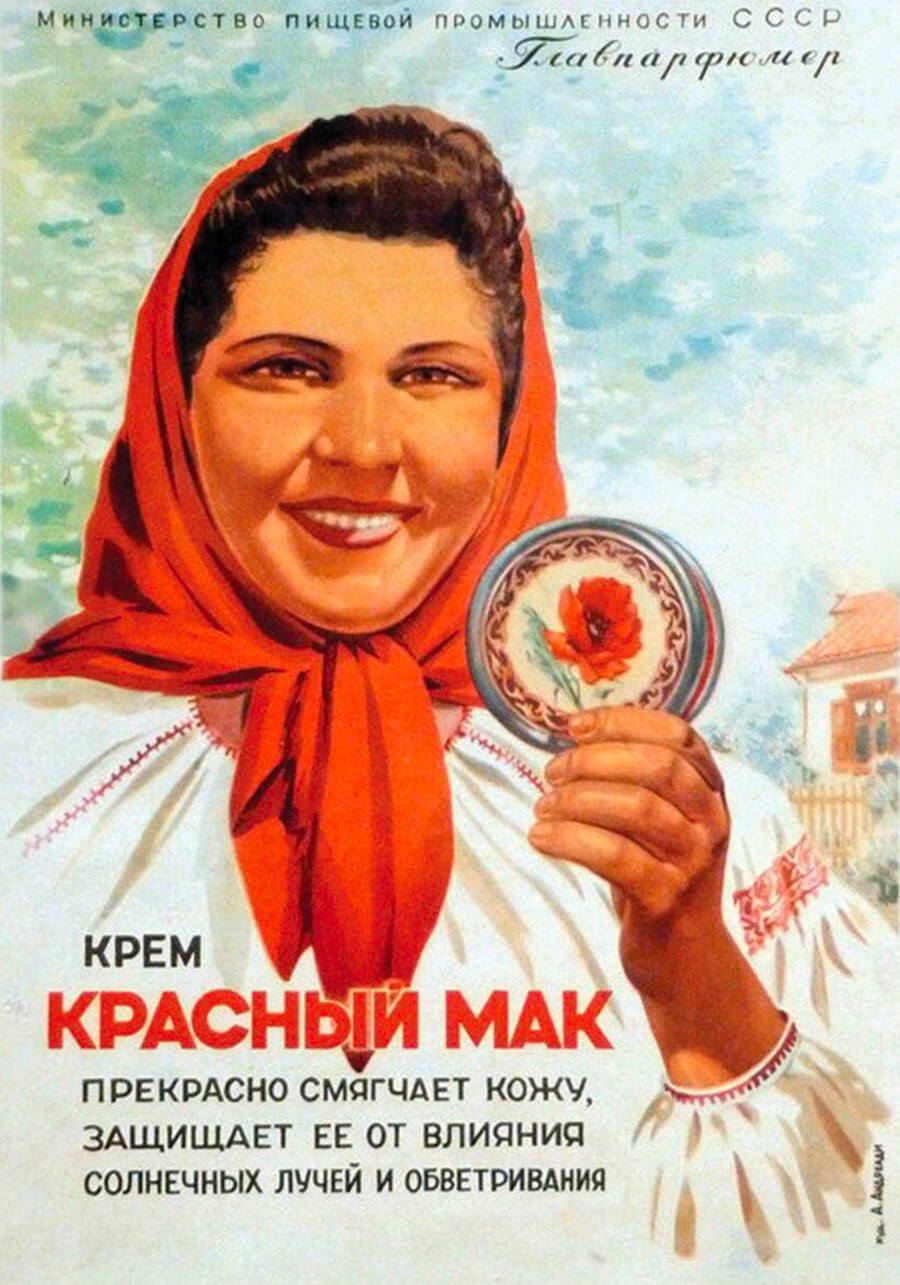
However, the hygiene education movement had numerous opponents among the population. They considered self-care to be the domain of the "bourgeois", whom they actively fought against.
5. State perfume factories. TEZHE - Moscow
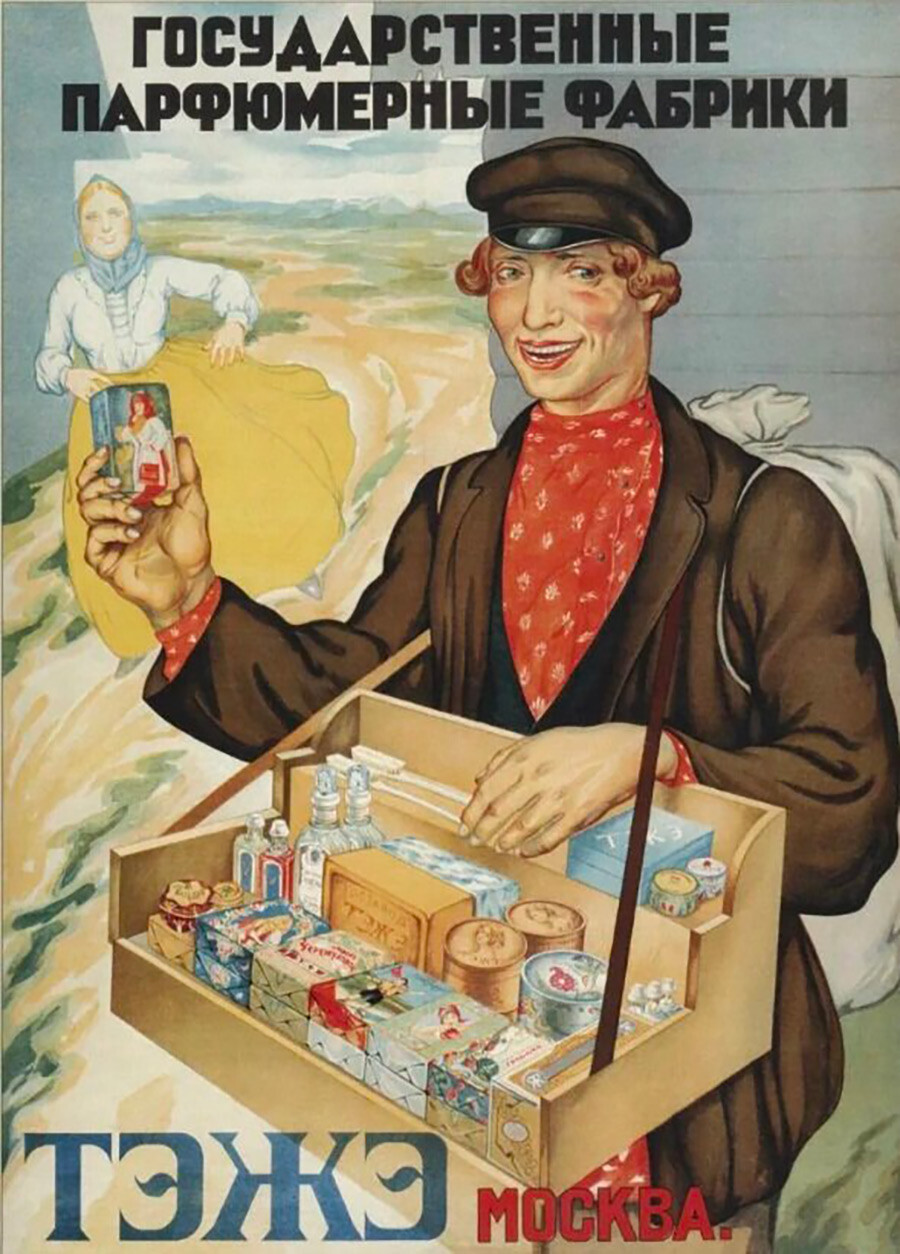
Nevertheless, in 1936, the Soviet Union became the third largest producer of perfumes in the world after the United States and Great Britain.
6. ‘Record’. The best toilet soap!
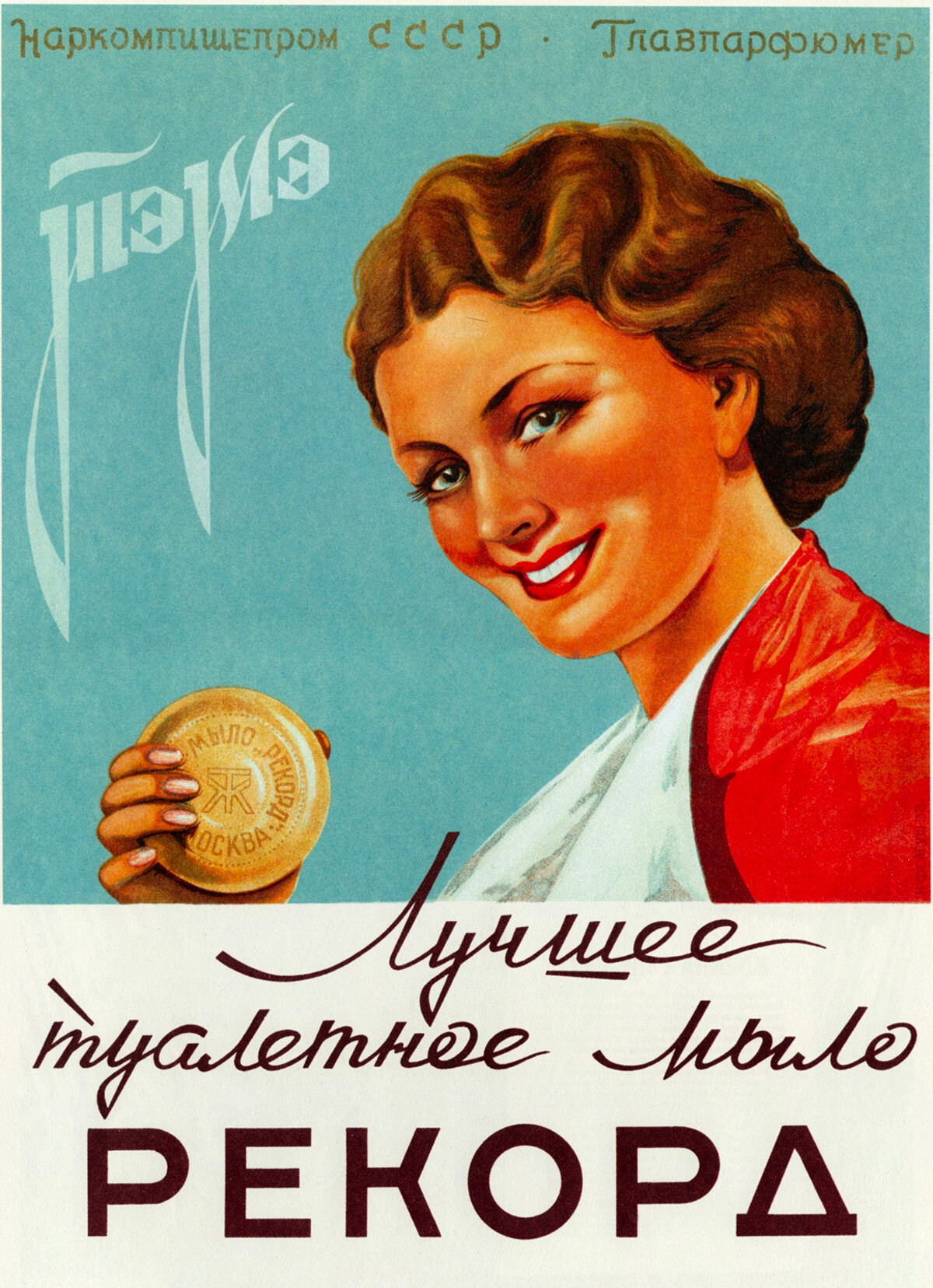
During the Great Patriotic War, of course, beauty was no longer thought of. The factories were evacuated behind the Urals and produced, for the most part, soap and tooth powder for the front. A new era of advertising posters about cosmetics began in the 1950s.
7. ‘Sanit’ toothpaste
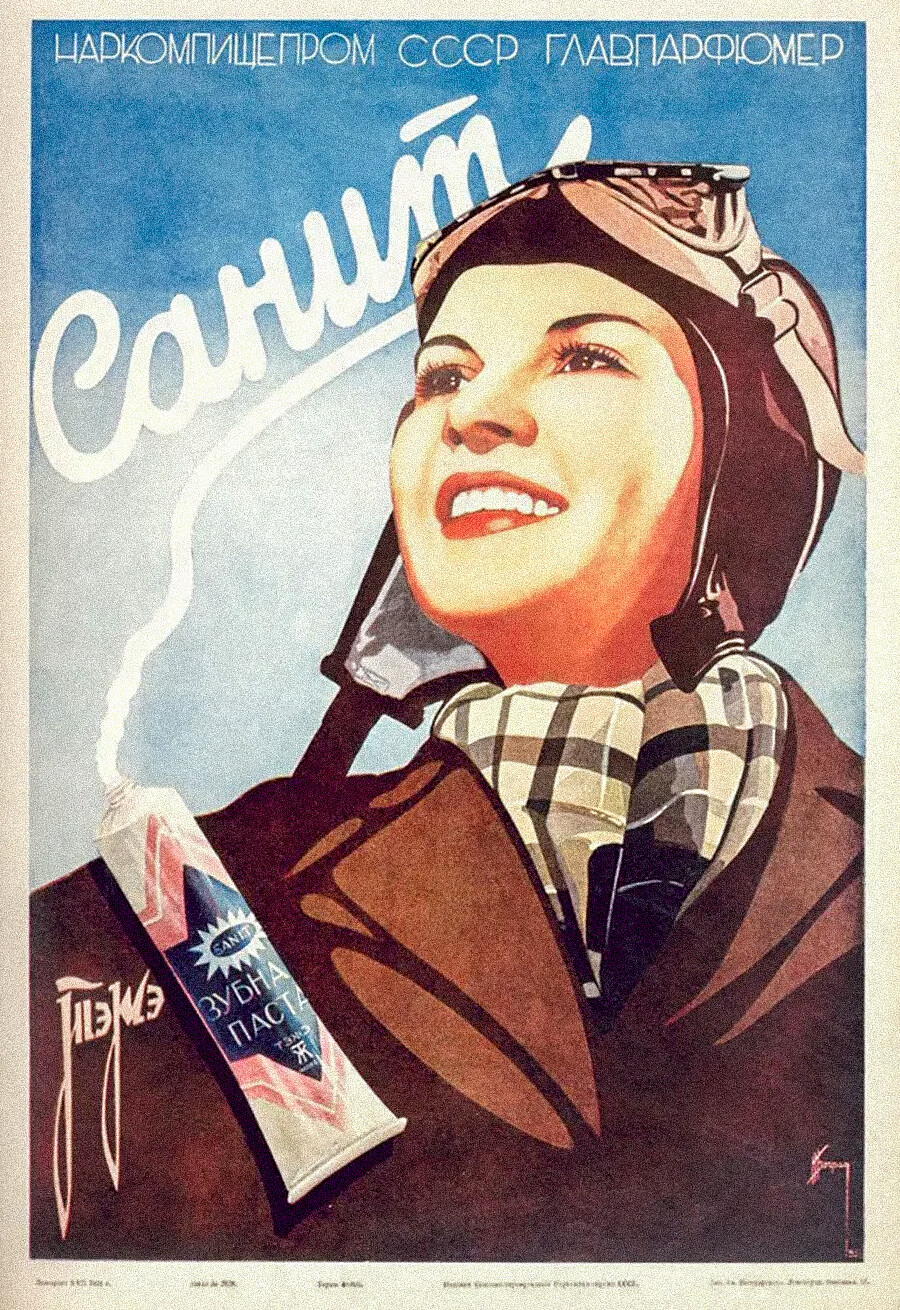
Post-war posters began to depict not only women, but also men. At this time, a variety of shaving products were already being produced.
8. Everyone needs three items!
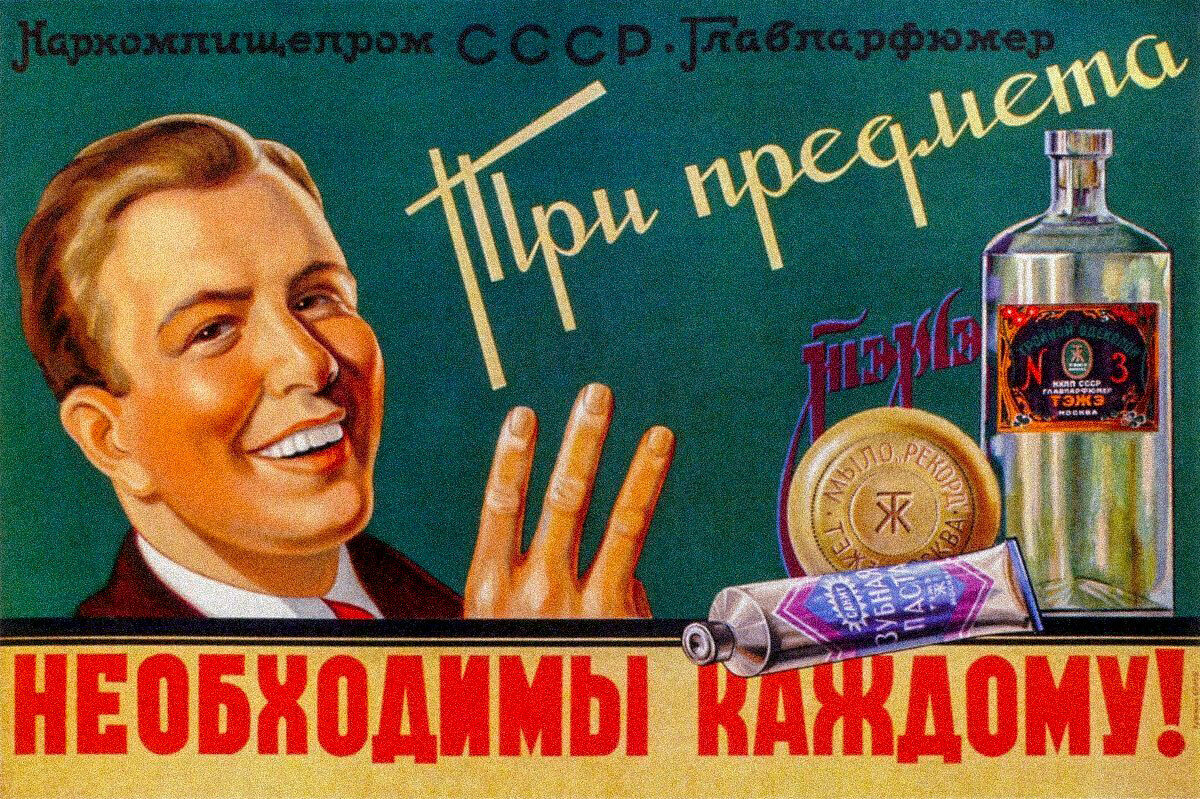
The Soviet man was offered several types of razors, soap cream and aftershave cologne.
9. Excellent shaving products. Soap cream in a tube and hygienic refreshing triple cologne
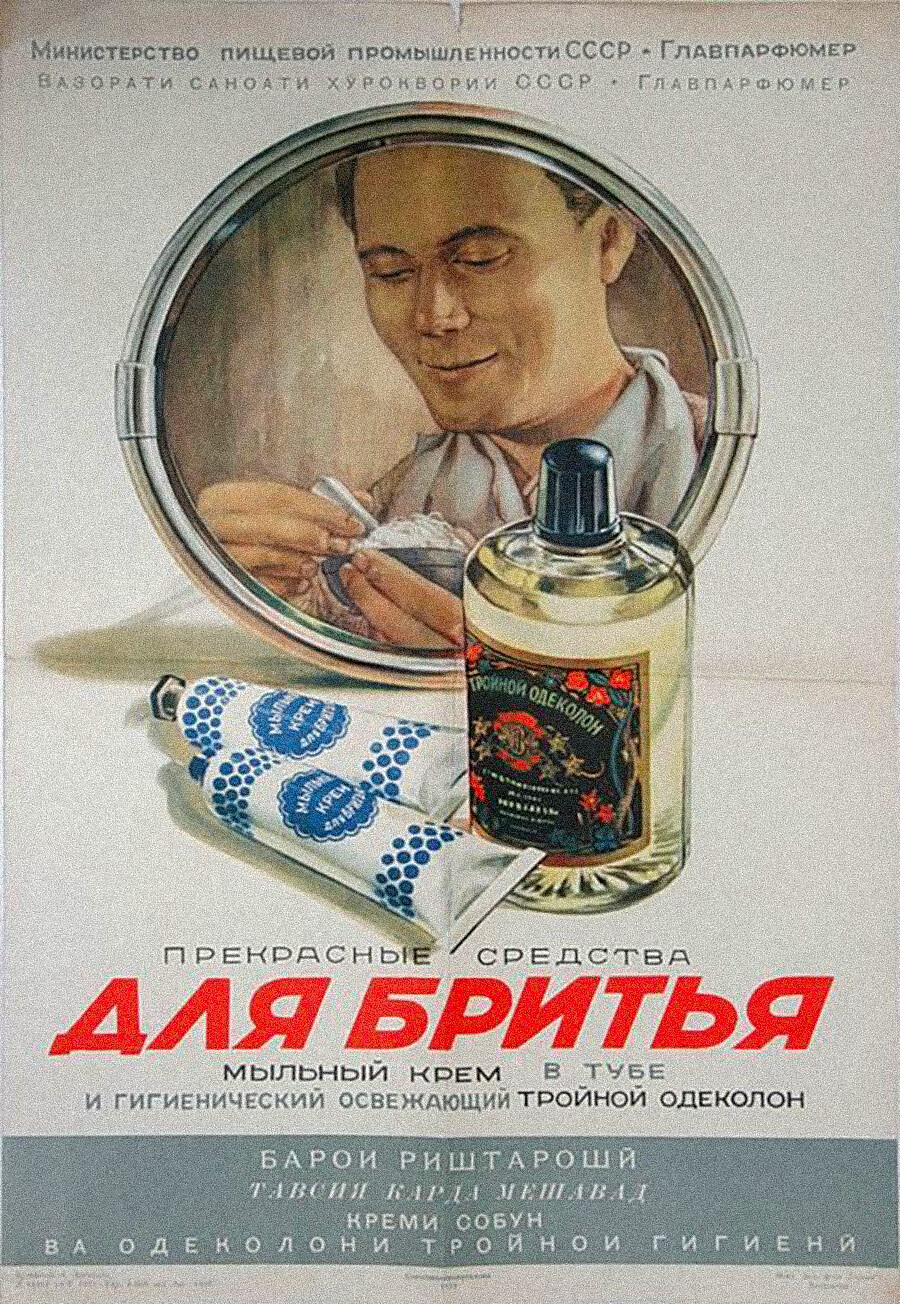
Both men and women used colognes, it was considered a good thing to do. They were also a common gift.
10. ‘Siren’ (‘Lilac’). Cologne and strong-smelling perfume
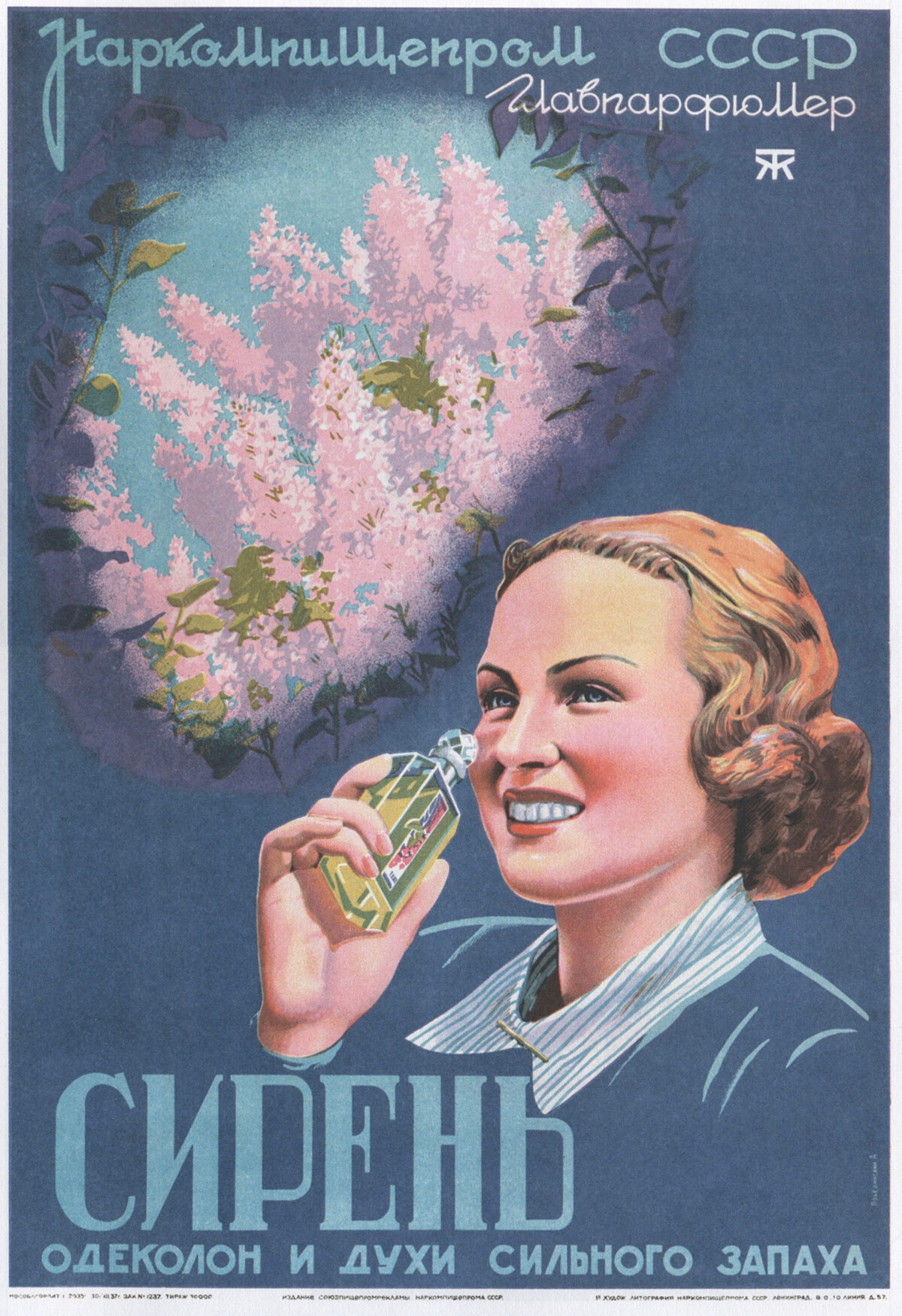
In the 1960s, there was a fashion for "naturalness" in the USSR: the presence of essential oils in cosmetics was emphasized, magazines published articles on how to make face cream with your own hands.
11. ‘Express’, ‘Progress’, ‘Crimean Rose’. Toilet soap from imported raw materials
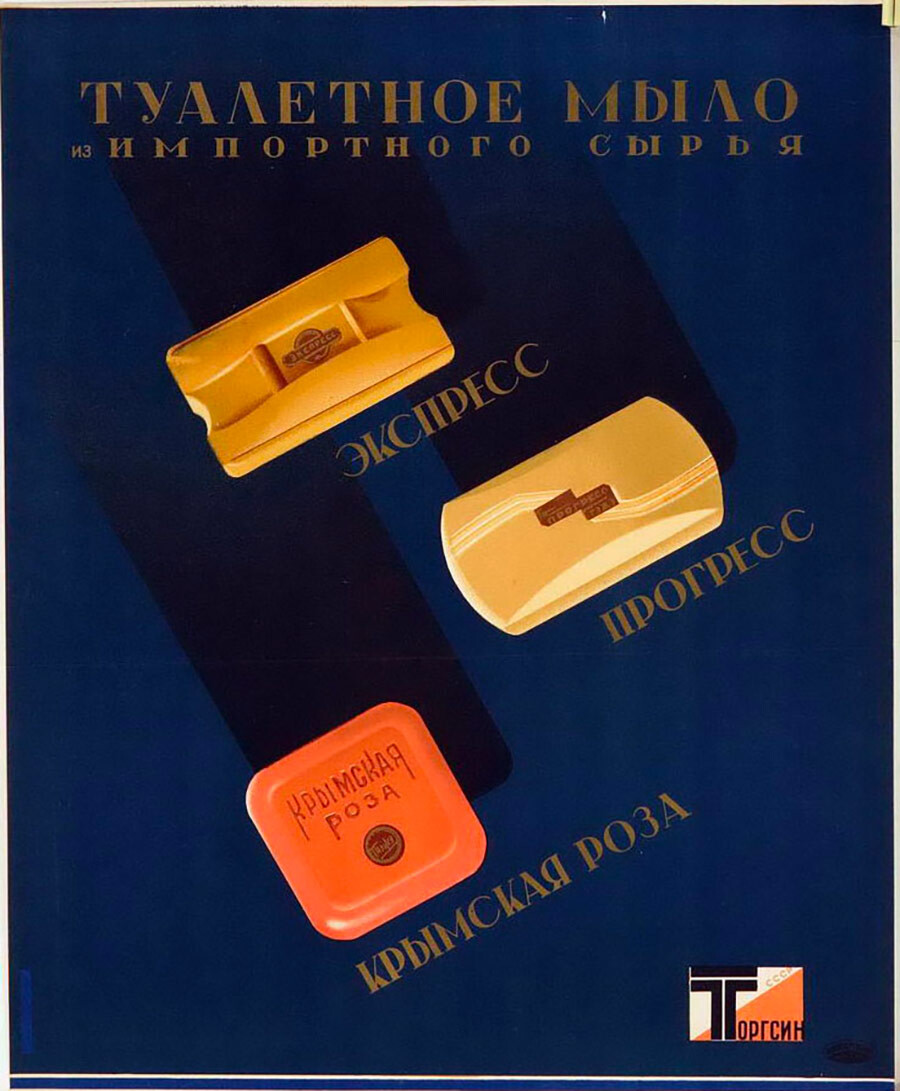
In the 1970s, appeared and colored eye shadow, and mascara in the USSR and they also began to import cosmetics from Europe. At the same time, the format of advertising was changing. Photos of products began to be published in magazines, as they are today, and posters became a thing of the past.
12. ‘Eteri’ liquid cream. It is used to soften dry skin
